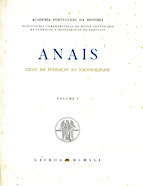

................................
The pre-modern Portuguese economy received particular attention, reflecting its crucial role in the rise of the empire and an economy based on maritime trade and local workshops. Studies focused on understanding its industrial structures (Castelo-Branco, 1975; Banha de Andrade, 1979; António Cruz, 1980; Almeida Santos, 1989, etc.) and on analyses of fiduciary and financial systems (Ribeiro Soares, 1977; Bívar Guerra, ibid. ). Social history also grew in importance, with studies exploring the multicultural centres of Portugal, including Jewish, Moorish, Romanian, Italian, French, and Angolan communities. Scholars examined the social structures underlying Portuguese society (such as Mattoso, 1977) and legal notions concerning slavery (Eduardo dos Santos, 1975). Authors like José Augusto França (1977) and Francisco da Gama Caeiro (1980) emphasized the importance of art, particularly as a subject of historical inquiry. Archaeology and anthropology received renewed attention as well, enriching understanding of pre-Portuguese civilizations (as explored by Fernando de Almeida, 1977). Overall, the Anais evolved into a historiography that was increasingly multidisciplinary and comprehensive. Rather than focusing on a few major historical events, it began to foster a more critical examination of sources while embracing broader and more structural perspectives.
Active bibliography: Academia Portuguesa da História. Anais da Academia Portuguesa da História . Série I. Vols. I-XIV. Lisboa: vv. editores, 1940-1959. Academia Portuguesa da História. Anais da Academia Portuguesa da História. Série II. Vols. I-XXXII. Lisboa: vv. editores, 1946-1989.
Passive bibliography: Matos, Sérgio Campos, “Continuidades e rupturas historiográficas: o caso português num contexto peninsular (c. 1934-c. 1940)”, Sérgio Campos Matos e Maria Isabel João (orgs). Historiografia e Res Publica nos dois últimos séculos. Lisboa: Centro de História da Universidade de Lisboa, 2017, pp.131- 158; Torgal, Luís Reis. Ideologia política e teoria do Estado na Restauração , vol. I. Coimbra: Biblioteca Geral da Universidade, 1981; Torgal, Luís Reis, José Maria Amado Mendes e Fernando Catroga. História da História em Portugal. Sécs. XIX-XX . Lisboa: Círculo de Leitores, 1996.
Daniel Tavares
This work is financed by national funds through FCT - Foundation for Science and Technology, I.P, in the scope of the projects UIDB/04311/2020 and UIDP/04311/2020.
